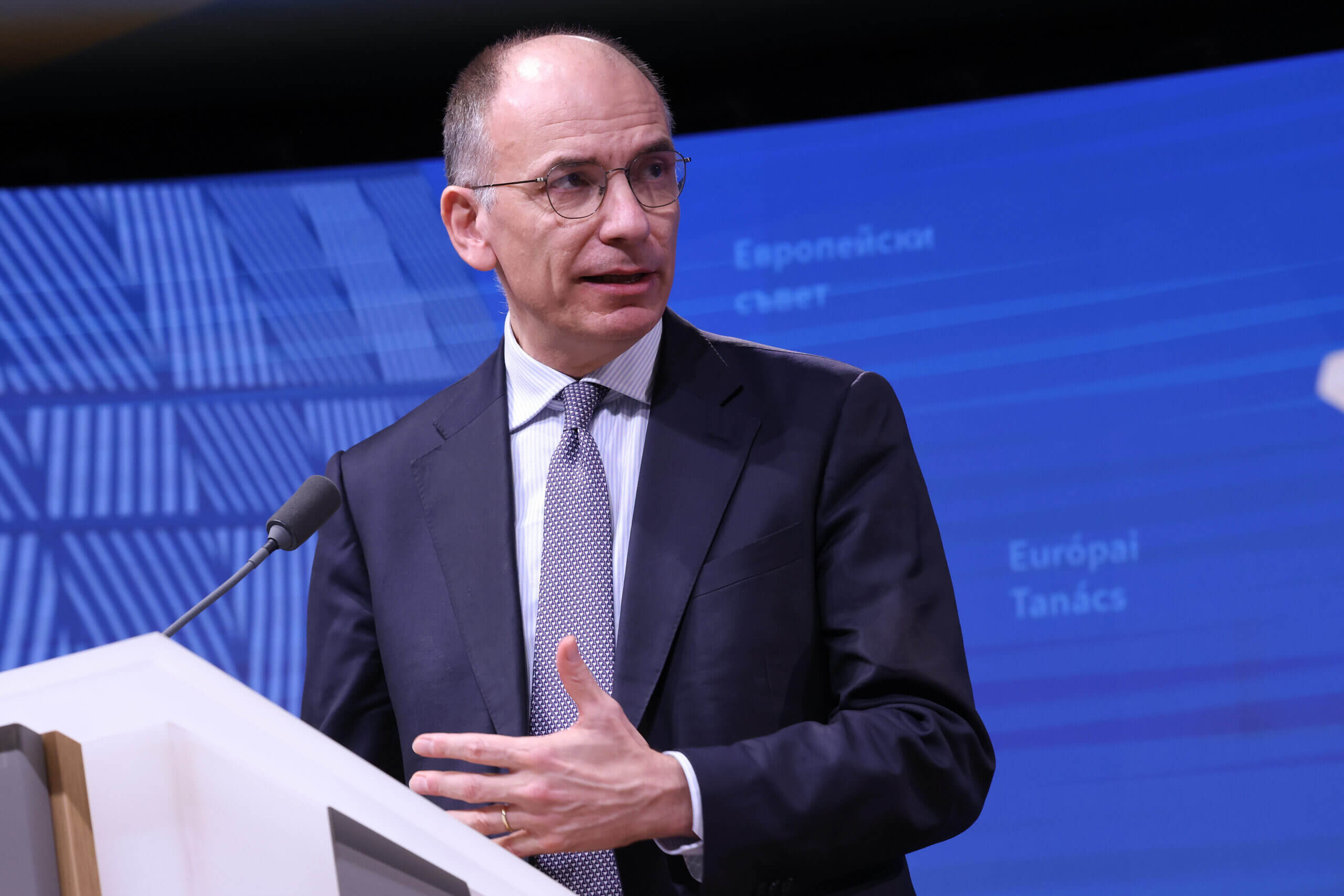This is the roadmap for EU market’s future
“Europe needs a fifth freedom which includes free access and mobility for research and innovation and education in the EU single market“, says Enrico Letta in his celebrated report “Much More than a Market: Speed, security, solidarity. Empowering the Single Market to deliver a sustainable future and prosperity for all EU Citizens“
Enrico Letta, the President of the Jacques Delors Institute and former Italian Prime Minister, presented a diagnosis at the High-Level Conference European Pillar of Social Rights. His analysis, commissioned by the Council of the European Union, is a testament to his expertise and credibility, deepening our understanding of the current structure of the single market.

Enrico Letta – Presentation of the Much More than a Market report ©EuroNews
It starts from the realization that many things have changed since Jacques Delors designed and implemented it in 1985.
“The single market is not an abstract concept but the cornerstone of the European integration”
At that time, China and India did not represent more than 5% of the world’s economy, the Soviet Union still existed, and the European Union had less than half of the states that are now part of it.
In 1985, the United States and the national states of the European Union dominated the global economy. That is why three sectors remained outside the single market to continue being part of local European dynamics (what Letta calls the leftovers):
- Finance
- Telecommunications
- Energy
That being said, the four essential freedoms the single market still rests on are the free movement of people, goods, services and capital. Enrico Letta takes the chance to call for a fifth freedom on R&D and education to be added, as Jacques Delors did himself.
This fifth freedom should complement initiatives already in place, such as those envisioned by the Digital Markets Act or the AI Act (among others) and allow more competitiveness in topics such as data analysis, quantum computing, biotech and the space industry. “Even now, the European Space Agency is still not part of the structures of the European Union.”, claimed Letta in the presentation of the report held in Brussels on 29 Friday, 2024.
If in 1985 it all seemed like an illusion, now we could find ourselves at a time when a united and integrated Europe in terms of research and education could be irreversible.
According to Letta, the main objectives of the next legislature 2024-2029 will be:
- To ensure the implementation and success of a fair green and digital transition
- Setting a clear director for European Union’s Enlargement wiht new member states
- Europe’s security
All of these goals should be achieved through the only possible economy in the context of climate emergencies: a circular economy.
The big questions EU citizens will raise will be related to the costs of implementing these goals and their allocation. CEC European Managers has been publishing several position papers that can help policymakers in this task.
“The single market is not an abstract concept but the cornerstone of the European integration”, and its pillars remain free trade and openness in the unique global context of the social market economy, that is, in a commitment to proximity through the necessary social dialogue.
Likewise, the unique European model of small and medium-sized enterprises and the commitment to reducing bureaucracy must guide legislators’ actions. Policymakers must enforce the laws and rules of the single market in all their aspects. The EU single market should also protect the autonomy of Europe and its companies because “the risk of deindustrialization is real, but it is not an irreversible process.”
“The EU Single Market promotes inclusive prosperity, ensuring fair opportunities, workers’ rights, and social protection for all while contributing to growth and competitiveness.”
Finally, CEC European Managers highlights that the report does not explicitly mention managers and leaders. We, managers, with our daily decisions make possible the smooth functioning of the economic order. That being true, we celebrate that the report mentions the “the values of the European Pillar of Social Rights for a cohesive, people-centred Union.“
CEC European Managers recalls that managers will be crucial in applying the star measures of this extensive report presented to the Council of the European Union last Thursday, April 18, 2024.
An example of that is sustainability and the vision that in 2030 sectors such as remanufacturing (currently valued at 31 billion euros) can grow to 100 billion, creating 0.5 million new jobs and saving 21 megatons of CO2 emissions.
You can download and read the full report here.





